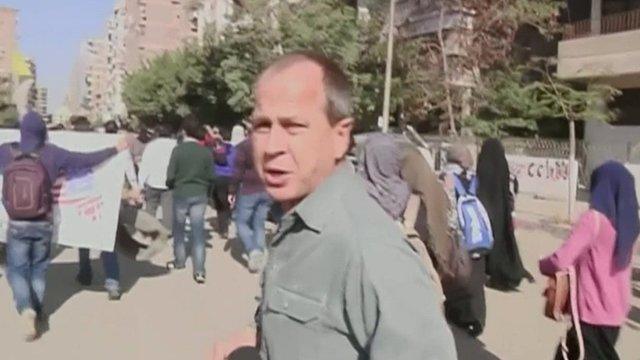Peter Greste's release prompts muted media response
- Published
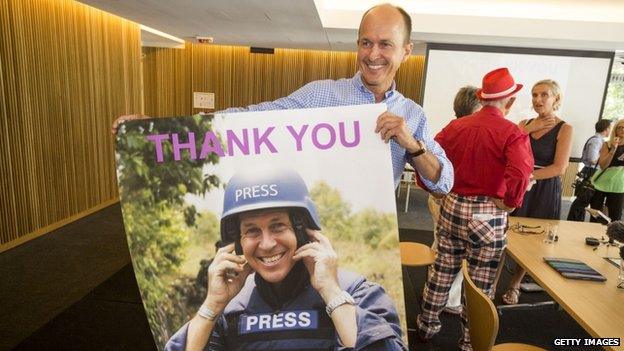
Andrew Greste, brother of Peter, celebrates his release at a press conference in Brisbane yesterday
Media in the Middle East and Australia give a low-key reaction to the release of former Al Jazeera journalist and Australian Peter Greste.
Mr Greste's employer, Qatari satellite channel Al Jazeera, external, welcomes the release, but also expresses concern over the continued detention of Mr Greste's colleagues, Egyptian-Canadian Mohamed Fahmy and Egyptian Baher Mohamed.
In Egypt, his release is reported on the front pages of several Egyptian dailies but is completely ignored in morning news bulletins on state TV.
The story is a touchy subject for the state media, and the government of President Abdul Fattah al-Sisi has been accused of reversing the progress on media freedom made after the ousting of former President Hosni Mubarak.
Mr Greste and his colleagues were arrested on allegations of spreading "false news".
The Egyptian authorities suspect Al Jazeera of being biased towards the Muslim Brotherhood, which was removed from power by President Sisi.
In the Egyptian press, the state-run daily, al-Akhbar, external, frames the release as being part of many others, reporting on "the release of 312 prisoners to mark the revolution anniversary and Police Day and the release of Australian journalist".
However in a front page headline, the privately-owned Egyptian daily, al-Watan, external, reports speculation that Mohamed Fahmy will be freed and deported after being stripped of his Egyptian citizenship.
Social media users, many of them journalists, are delighted by Mr Greste's release but voice frustration that only Mr Greste - and possibly Mr Fahmy - will be freed.
Former Al Jazeera correspondent Dina Samak (@dinasamak) tweets: "So, Baher is the only one to be left in jail in al-Jazeera case simply because he is Egyptian and has no other nationality."
User Farah Saafan (@FarahSaafan) tweets: "And why would they only release Peter Greste? If he is "guilty" of the same offences as the other two, makes sense to release everyone, no?"
Journalist Mohamed Seif-al-Dawla (@seif_eldawla) says: "So, Australian nationality is the solution."
'Face-saving'
With Australian media attention firmly on Prime Minister Tony Abbott's current political travails, the Peter Greste story is not front-page news in his homeland, but several commentators analyse the consequences of Greste's release.
An opinion piece by Amin Sakai on the website of the Australian Broadcasting Corporation, external (ABC) public broadcaster says Cairo took a "face-saving" measure in releasing Greste.
"It appears that mounting domestic considerations and international pressure has played a key role in his deportation," he says.
"Whatever the ultimate outcome, Cairo has, for the time being, taken an important step towards improving its relations with Australia and its international standing."
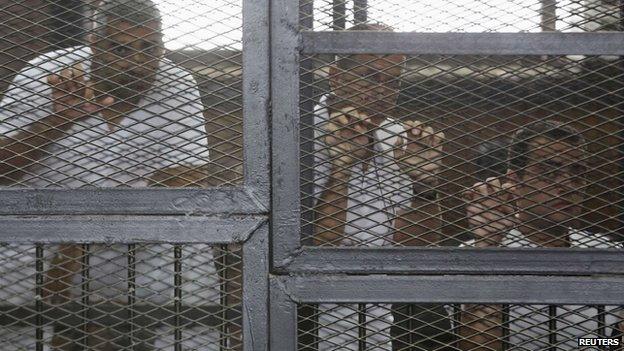
Peter Greste (C), Mohamed Fahmy (L) and Baher Mohamed (R) were arrested in 2013
Also on ABC, external, Julie Posetti wonders whatever criticism may be levelled at Egypt over media freedom, the Australian government's record is also patchy.
According to Posetti, journalists reporting on terrorism in Australia could risk imprisonment under a set of new national security laws and policies brought in by the Abbott government
"While the government is celebrating the release of journalist Peter Greste, it's still responsible for legislation that represents a chilling attack on media freedom in our own country," she concludes.
The Sydney Morning Herald, external notes that although Mohamed Fahmy may be released soon, his colleague, Baher Mohamed, faces "the horrifying prospect" of remaining in prison until a retrial and the possibility of receiving another long jail sentence.
"Given Greste's commitment to media freedom, one thing seems certain - he will not allow his colleagues to remain in prison without raising his voice in their defence and continuing to campaign for their release," the paper predicts.
BBC Monitoring, external reports and analyses news from TV, radio, web and print media around the world. You can follow BBC Monitoring on Twitter , externaland Facebook, external.
- Published2 February 2015
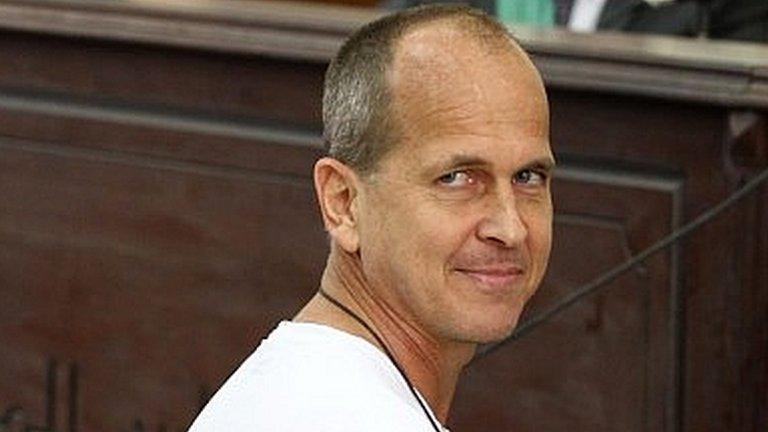
- Published2 February 2015
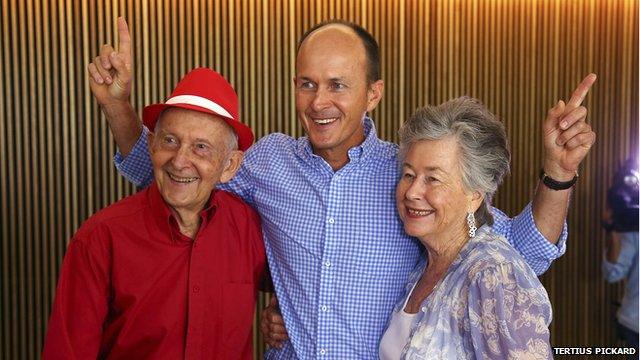
- Published13 February 2015
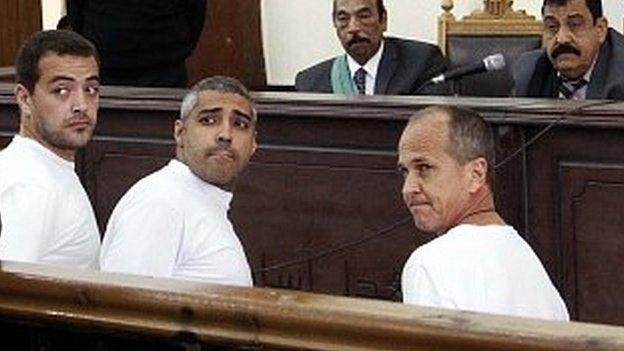
- Published1 February 2015
